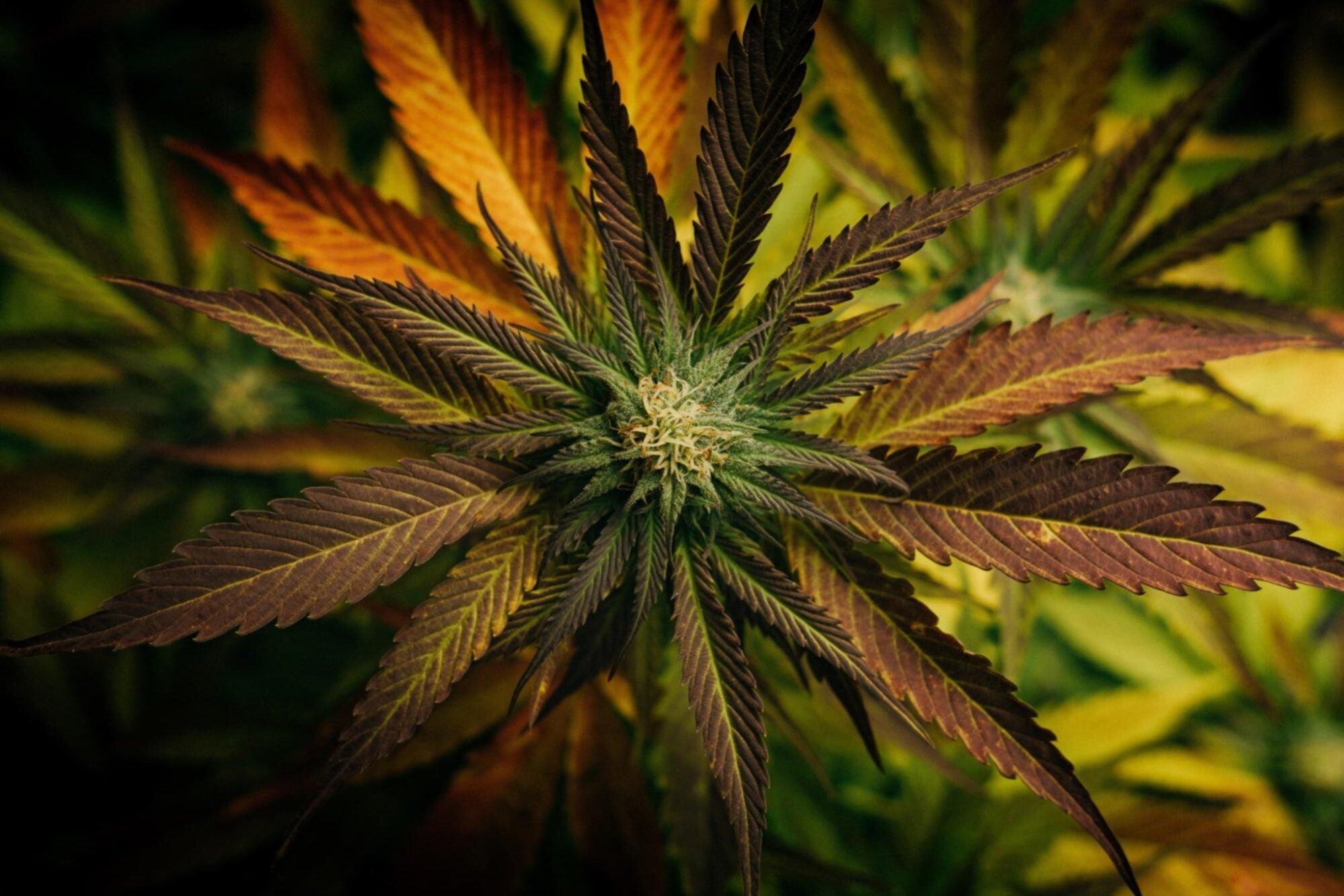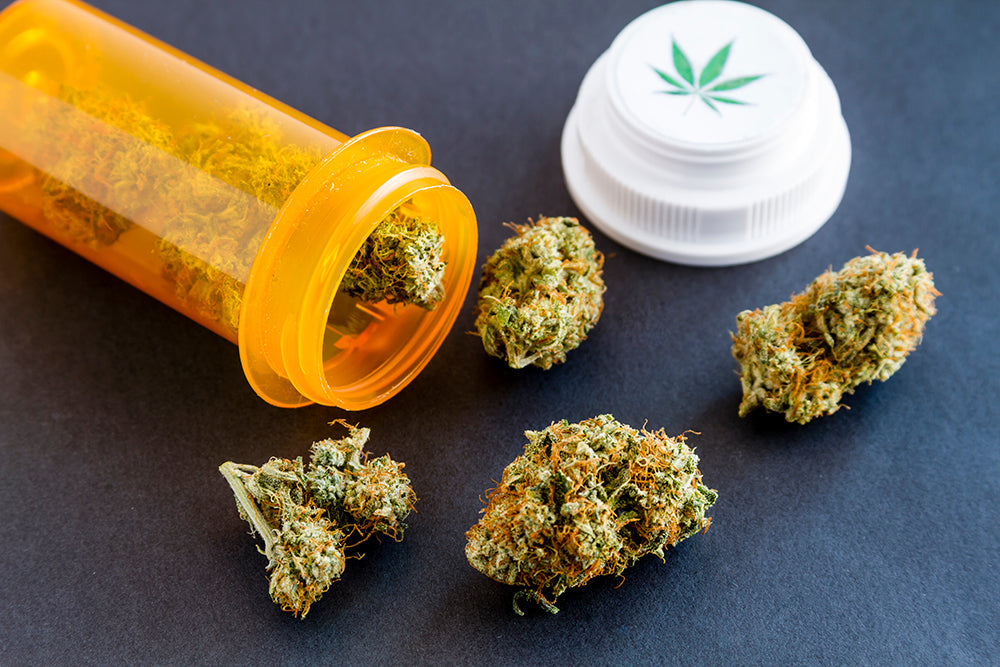
Trump’s Marijuana Policy: A New Chapter in Reform
As the United States navigates the complex landscape of marijuana legalization, recent statements from former DEA Acting Administrator Derek Maltz have sparked intrigue about the future of federal cannabis policy under President Donald Trump’s second term. Maltz, a seasoned law enforcement veteran, predicted in an August 2025 interview on The Dales Report that Trump’s administration will “dig in” to marijuana laws, aiming to “eliminate confusion, not create it.” This bold assertion signals a potential shift in how the federal government approaches the state-federal divide on cannabis, a topic that has polarized policymakers and voters alike. With growing public support for reform, the administration’s next moves could reshape the marijuana industry, impacting everything from medical research to wholesale markets. Let’s explore what this means for America’s cannabis future.
The State of Marijuana Laws in 2025
Marijuana laws in the U.S. have evolved dramatically over the past decade. As of August 2025, 24 states and the District of Columbia have legalized recreational cannabis, while 38 states permit medical use. Yet, federal law still classifies marijuana as a Schedule I substance under the Controlled Substances Act (CSA), placing it alongside heroin and LSD as a drug with “no accepted medical use” and a “high potential for abuse.” This discrepancy creates a patchwork of regulations, where state-legal businesses face federal restrictions on banking, taxation, and interstate commerce. According to the National Cannabis Industry Association, the U.S. marijuana market was valued at $32 billion in 2024, yet businesses struggle under IRS Code 280E, which prohibits tax deductions for Schedule I-related enterprises.
During his 2024 campaign, Trump endorsed rescheduling marijuana to Schedule III, a category that acknowledges medical benefits and lower abuse potential, like ketamine. This stance aligns with a Biden-era proposal initiated in October 2022, which recommended moving cannabis to Schedule III after a Department of Health and Human Services (HHS) review. The Drug Enforcement Administration (DEA) began formal rulemaking in April 2024, but the process stalled due to legal challenges and a regulatory freeze issued on Trump’s inauguration day, January 20, 2025. Maltz’s prediction suggests Trump may prioritize resolving this impasse, potentially unlocking tax breaks and research opportunities for the industry.
Decoding Maltz’s Prediction
Derek Maltz, who briefly served as interim DEA head in 2025, emphasized a comprehensive review of marijuana laws, stating the administration would examine them “from top to bottom, from left to right” to find the “best way forward.” His comments reflect a desire to address the confusion caused by conflicting state and federal policies. For instance, while states like Colorado and California thrive with regulated markets, federal prohibition limits banking access, forcing many businesses to operate in cash. The SAFE Banking Act, which Trump supported in campaign statements, could resolve this by allowing financial institutions to serve state-legal cannabis companies without fear of federal reprisal.
Maltz’s call for clarity resonates with industry stakeholders. The U.S. Cannabis Council reports that 70% of Americans support legalization, per a 2024 Pew Research Center survey, with only 11% opposing it outright. This public sentiment, coupled with Trump’s campaign promises, suggests a political incentive to act. However, Maltz avoided committing to a specific outcome, reflecting the administration’s cautious approach. Trump’s cabinet picks, including Attorney General Pam Bondi and DEA Administrator Terrance Cole, have historically opposed cannabis reform, raising questions about whether the administration will follow through on rescheduling or pursue stricter enforcement.
The Role of Marijuana Laws Online
The digital age has transformed how marijuana laws are accessed and understood. Marijuana Laws Online platforms, such as those hosted by NORML and the Marijuana Policy Project, provide real-time updates on state and federal regulations, empowering businesses and consumers to navigate the complex legal landscape. These resources detail everything from possession limits to licensing requirements, which vary widely. For example, Minnesota allows personal cultivation of up to eight plants, while Florida’s failed Amendment 3 would have permitted recreational sales by existing medical dispensaries. Online databases also highlight pending legislation, like the STATES Act, which aims to protect state-legal programs from federal interference.
These platforms are critical for Marijuana Wholesale businesses, which operate in a legally gray area. Wholesale distributors in states like California and Oregon supply dispensaries with bulk cannabis products, but federal restrictions on interstate commerce limit scalability. The 2018 Farm Bill, signed by Trump, legalized hemp-derived CBD with less than 0.3% THC, spurring a $5 billion hemp market by 2024. However, broader cannabis wholesale operations face hurdles, as federal law prohibits transporting marijuana across state lines. If Trump’s administration advances rescheduling, wholesale markets could expand, potentially reducing prices and increasing access for consumers.
Challenges and Opportunities Ahead
Despite Maltz’s optimism, the path to reform is fraught with challenges. The DEA’s rescheduling hearings, paused in January 2025 after allegations of bias in witness selection, remain unscheduled. DEA Chief Administrative Law Judge John Mulrooney’s retirement further complicates the process, leaving Terrance Cole to steer the agency. Cole, who aligns with Nancy Reagan’s “Just Say No” philosophy, has expressed concerns about cannabis’s health impacts, citing a 2024 study linking marijuana use to higher youth suicide risks. His strategic priorities, announced in April 2025, focus on fentanyl and cartels, not rescheduling, casting doubt on swift progress.
Conversely, Trump’s campaign rhetoric offers hope. In September 2024, he became the first major-party nominee to endorse a state legalization initiative, Florida’s Amendment 3, though it failed to pass. He also pledged to support research into marijuana’s medical benefits, a priority echoed by HHS Secretary-designate Robert F. Kennedy Jr., a vocal cannabis advocate. If rescheduling occurs, it could reduce tax burdens by allowing deductions under IRS Code 280E, potentially saving businesses millions annually. Additionally, Schedule III status would ease research restrictions, fostering innovation in cannabis-based treatments for conditions like epilepsy and chronic pain.

The Broader Implications for America
Trump’s potential “dig in” to marijuana laws could redefine the federal approach to cannabis. A Schedule III reclassification would not legalize recreational use but would align federal policy more closely with state laws, reducing enforcement conflicts. For Marijuana Wholesale markets, this could mean streamlined operations and access to banking, boosting economic growth. The Last Prisoner Project highlights another critical angle: reform could address the 55,000 Americans incarcerated for nonviolent cannabis offenses, including veterans like Deshawn Reilly, serving 17 years for a victimless crime. Expunging such convictions, as Biden began in 2022, could be a bipartisan win for Trump.
Public sentiment, as reflected in a 2024 Gallup poll showing 70% support for legalization, underscores the urgency of reform. Online platforms amplify this demand, with advocacy groups like the American Rights and Reform PAC running ads to remind Trump of his campaign promises. However, opposition from figures like Bondi and Cole, combined with Project 2025’s silence on cannabis, suggests reform may not be a top priority. Maltz’s prediction hinges on Trump’s willingness to balance these competing interests while addressing the fentanyl crisis, which claimed 70,000 lives in 2024.
Looking Forward: A Cannabis Crossroads
As Trump’s second term unfolds, the cannabis industry stands at a crossroads. Maltz’s forecast of a thorough policy review offers hope for clarity, but the administration’s mixed signals create uncertainty. Will Trump champion rescheduling, as promised, or will prohibitionist voices prevail? The answer will shape the $32 billion industry, from Marijuana Laws Online resources to wholesale markets and beyond. For now, stakeholders must stay informed and engaged, leveraging digital tools and advocacy to push for a future where cannabis policy reflects science, justice, and public will.
Discover premium cannabis products with D Squared WorldWide, your trusted partner in the evolving marijuana wholesale market. As federal marijuana laws shift, our high-quality, sustainably sourced products meet the demands of dispensaries navigating the $32 billion industry. From hemp-derived CBD to state-compliant cannabis, we ensure reliability and compliance with Marijuana Laws Online resources. Join the future of cannabis wholesale with D Squared WorldWide, where innovation meets opportunity. Schedule a call today to explore our offerings and elevate your business in this dynamic market. Contact us now to secure your competitive edge!
Reference:
1. Adams, P., Rychert, M., & Wilkins, C. (2021). Policy influence and the legalized cannabis industry: learnings from other addictive consumption industries. Addiction, 116(11), 2939-2946. https://doi.org/10.1111/add.15483
2. Benedetti, E., Resce, G., Brunori, P., & Molinaro, S. (2021). Cannabis policy changes and adolescent cannabis use: evidence from europe. International Journal of Environmental Research and Public Health, 18(10), 5174. https://doi.org/10.3390/ijerph18105174
Brown, A. (2022). The criminalization of the cannabis plant: decolonizing the harmful enforcement. Decolonization of Criminology and Justice, 4(2), 59-68. https://doi.org/10.24135/dcj.v4i2.47



